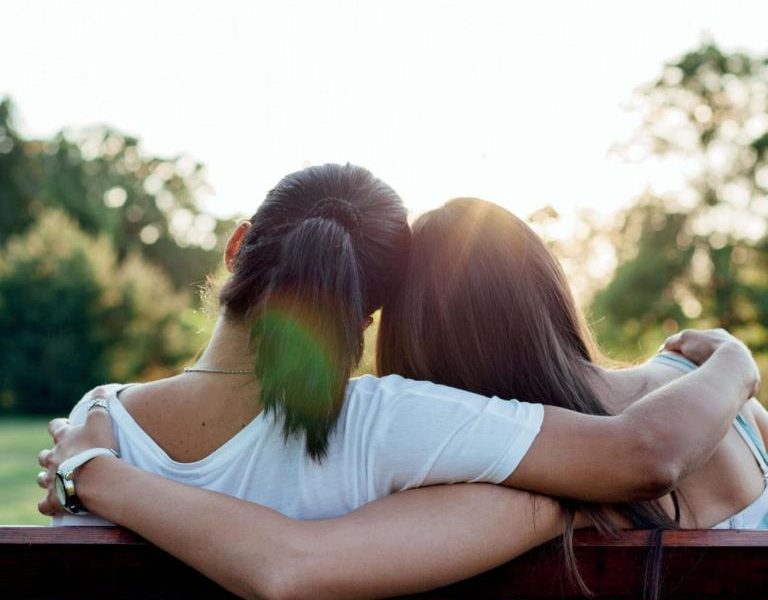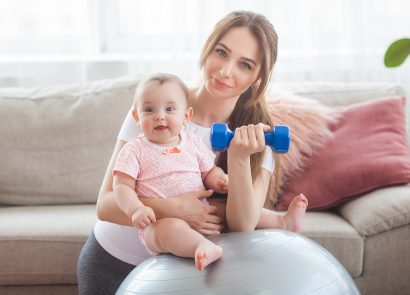September’s here, and with it a host of new opportunities for young people on the threshold of adulthood. But waving your kids off to uni, on a gap year or into a new home brings a bittersweet mix of emotions. The fridge is full but the house feels empty; that long-anticipated silence suddenly feels stifling. ‘Empty nest syndrome’ is no new phenomenon, but a rising tide of ‘boomerang’ offspring has perhaps changed the way we should view our children’s departure. With figures from the Office for National Statistics suggesting that around 26 percent of 20 to 34-year-olds live with their parents, they might be back before you know it. So, it’s time to own the ‘empty nest’ moment…
1. Take small steps before the kids go
Gradually evolving your relationship with your child can take some of the sting from their departure, suggests counsellor and parenting coach Alicia Drummond (teentips.co.uk). “The developmental drive of adolescence is to start to change the connections with parents,” she points out. “If you’re holding on too tight at that stage, when they do finally take their independence it can feel like an almighty severing. If you’ve been letting go by degrees it doesn’t feel such a wrench.” If a departure date is on the horizon it’s not too late to mark those important milestones. “It’s important to talk about ‘moving out day’ and plan for it in advance rather than avoiding the subject,” says Dr Dimitrios Paschos, consultant psychiatrist at Re:Cognition Health (recognitionhealth.co.uk). “Plan activities in the lead up and celebrate your time together. Perhaps plan a family holiday so quality time can be spent together or organise a special celebratory dinner.”
2. Ignore advice to ‘suck it up’
Parents are used to putting their emotional needs second, but once your child has departed it’s time to process difficult feelings.
“If your whole focus for the past 20 years has been parenting, it’s easy to feel you’ve lost your sense of self,” says Alicia. “You’ll grieve for the life you’ve had, and so it’s natural that you’ll need to going through a period of acceptance before you can embrace your new opportunities.” You can’t, as the children’s rhyme has it, go under or over it – you have to go through it. “It’s like with any strong emotion, if someone tries to stop you experiencing it you end up ‘stuck’ feeling it,” says Alicia. “It’s much healthier to be allowed to feel what you feel, acknowledge it, accept it, mark it. Hopefully, if you can manage that part of it, you’ll move forward to embrace the new opportunities that come with your increased freedom.”
3. Explore new ways to stay in touch
OK, so nothing replaces the opportunity to reach out and hug your child. Staying connected, though, has never been easier. “Social media is an excellent way of keeping in touch with children when they move out of home,” says Dr Paschos. “Parents are able to keep abreast of their new lives and experience the new chapters through photos and videos. Communicating via text, email and phone is immediate, so even knowing that children are available at the touch of a button is reassuring. Modern communication won’t replace the feeling of loss when children move away – nothing will replace the face-to-face contact – but it can certainly help lessen the empty nest feeling.” Just remember to go easy on the ‘likes’; comfort-browsing to reassure yourself they’re happy and safe need not leave a digital trail!
4. Create you-centric routines
“Activities, new friends and hobbies can be a great distraction and will help ease the feeling of loss,” suggests Dr Paschos. “Every hour of every day shouldn’t be accounted for – it’s important to recognise and address your feelings, rather than masking them – but planning a few activities every week, whether joining a tennis club, arranging lunch with friends or pursuing a new hobby, is a great start.” This sense of a new era will feel particularly poignant to the many women for whom the departure of children coincides with the onset of menopause. A double whammy of change. “You’ve got hormones whizzing around your system, which will have a big impact on how you feel,” says Alicia. “From an evolutionary standpoint we’re not really designed to welcome change, but you can view it as an opportunity, and how you think about it will have an impact on how you feel about it.”
5. Pat yourself on the back
For Alicia, veteran of two emotional departures as her adult children have moved on, self-care is crucial. “Be kind to yourself,” she advises. “We pour a huge amount into our kids and the next thing they bugger off with barely a backward glance. You’ve got to be able to look after yourself and realise ‘This isn’t about me. It’s not me being rejected, it’s them embracing their next life stage’. I personally found that incredibly helpful. I was able to feel I’d done a really good job because they were ready for it. If your children are good to go, yes, it hurts, but it means you’ve done a great job. Big tick for you.”
“For the first two weeks my heart actually hurt”
When yoga teacher and wellness author Julie Montagu waved her daughter Emma off on a gap year last September, her emotions shocked her
I never understood what other mothers were talking about. I heard people talk about their children leaving and thought ‘I’ll be fine with that’. But my daughter leaving for a gap year hit me much harder than I could have imagined. Funnily enough, I wasn’t really dreading it coming up but when it happened I was heart-broken. Those first two weeks my heart actually really hurt. I was crying quite a lot and had to tell my other three children that it was just going to take me a bit of time to get over it.
When she comes home it’s like a party in the family. The whole energy in the house shifts. Emma is the glue to our family. I have a different relationship with her now – she’s a grown-up with a serious boyfriend – but when I hear the door go as the boys leave in the morning or arrive home, I sometimes get pangs of ‘I wish I could have that back with Emma’. juliemontagu.com
“Relationships always evolve”
PR guru Lynne Franks is mother to Joshua (42) and Jessica (40)
For me, there wasn’t one moment of facing an empty nest. We’re not your typically family; I went to live in America while the children were living in London, and then there was a house in Spain…So my children becoming independent wasn’t based around one moment. But then I’d say relationships are never at a static point. As a parent your relationship with your children is changing and evolving all the time.
I wouldn’t say it’s a state of flux, I’d say ‘flow’. There are so many points – two until four, four until six, into independent teenage-hood and adulthood. My children are 40 and I still don’t have all the answers. I look at my grandchildren now, and the way I became a mother to my own mother in her later years…Your relationship with your children is a constant process, from birth to death. lynnefranks.com





















